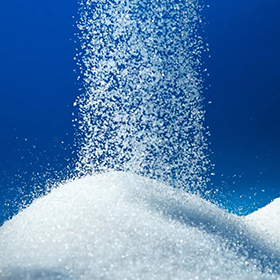
Sucralose is an organochlorine artificial sweetener approximately 600 times sweeter than sucrose and used in over 4,500 products. While Long-term carcinogenicity bioassays on rats and mice conducted on behalf of the manufacturer have failed to show the evidence of carcinogenic effects independent studies have brought these results into question.
This study found a significant dose-related increased in malignant tumors in males rats and a significant dose-related increased incidence of blood related cancers (hematopoietic neoplasia)s in males. That is the more sucralose the more cancers. These findings show that sucralose is not biologically inert and brings into question the original company sponsored research.
Sucralose was originally approved for use as a food ingredient in Canada in 1991. In 1998, the United States (US) Food and Drug Administration (FDA) permitted the use of sucralose in 15 food and beverage categories. In 1999, the FDA expanded the use of sucralose to all categories of food and beverage. The European Union has also approved the use of sucralose in a variety of products. Sucralose accounts for 27.9% of the $1.146 billion global sweetener market and is utilized in over 4,500 products, including foods, beverages, and drugs.
In another study on rats treated for 12 weeks with Splenda, a commercial intense artificial sweetener containing 1.1% sucralose and 93.6% maltodextrine they found several adverse effects on the intestines including reduction of beneficial fecal microflora, increased fecal pH, increased body weight, enhanced intestinal expression of P-gp, CYP3A4, and CYP2D1; several of these changes differed from controls even after discontinuation of the treatment with Splenda.
Source